How to stop a cyber-criminal getting access to your computer
- Posted by 1st-IT Team
- On 20th March 2017
Cyber-crime is now a bigger risk than ever before due to the amount of people connected to their devices.
When you hear the phrase ‘Cyber-crime’ it simply means criminal activities carried out by people on computers who hack into your data. Traditional crimes carried out by cyber-criminals usually involve hate crimes, identity theft, and credit card account thefts.
Cyber crimes are committed by small groups of hackers or individuals. Cyber-criminals always find new ways to commit old crimes by treating it as a business and developing their hacking software so they have more of an advantage to steal data from the public. Some of the criminals target big and small organisations that maintains people’s personal information such as schools or credit card companies. However, most cyber-criminals would rather target home computers because it is much easier. Nowadays it is very hard to track down a cyber criminal because the internet allows you to do things anonymously from any location, many computers are hacked and controlled by criminals from far away.
Security tips: ![]()
- Backup your personal data – A lot of people cannot afford to lose any of their data. Cyber-criminals usually hack into people’s data, so you should start backing up your personal or business data.
- Always keep up to date – Whenever you receive a notification to update your device you should always update it as soon as possible. Many software nowadays are mostly creating updates to try and improve security features as hackers are finding different ways of hacking in every time.
- Encrypt your data – Make sure you are using a secure encryption technique to keep your data safe. It is now important to have your data encrypted as when it is stole it will be almost impossible to gain access to your information.
- Downloading from the internet – Downloading things from the internet can be dangerous if the file or website is not safe, viruses and spyware are the main things that can infect your computer through downloads. The best way to not get your computer infected when downloading things is by downloading things from a well-known site that is used by many users instead of downloading from any random website.
- Always check your wireless network – Wireless networks are more prone to being hacked as hackers find it easier to access data and information that is important from wireless networks, to help prevent this your wireless network should be using WPA2 encryption instead of WEP encryption.
- Never leave your computer unattended – Leaving your computer unattended is a bad idea especially if you are in a public place as hackers may be on the look out. It is important that you always shut down your computer if you were to ever leave it unattended or else a hacker could tamper with your computer and data.
- Make sure all your passwords are secured – It is vital to keep your passwords secure, you should highly avoid using passwords that are related to your birthday or key events. Passwords should be complex containing uppercase, lowercase and numbers, they should also be changed every months so your data will be safe.
- Try not to keep data on your phones – Many people today keep important data on their mobile phones and tablets, devices don’t often have the right levels of protection to keep your data safe. To make sure your data is much safer on your devices you should consider implementing data securing policies that will keep your data safe.
- Avoid spam – Spam is an ongoing problem for everyone and can cause a lot of security problems as they could contain unwanted viruses and spyware. This can be avoided by simply not subscribing to any newsletters that aren’t necessary, avoid clicking and downloading links in spam mail as this can create a virus.



